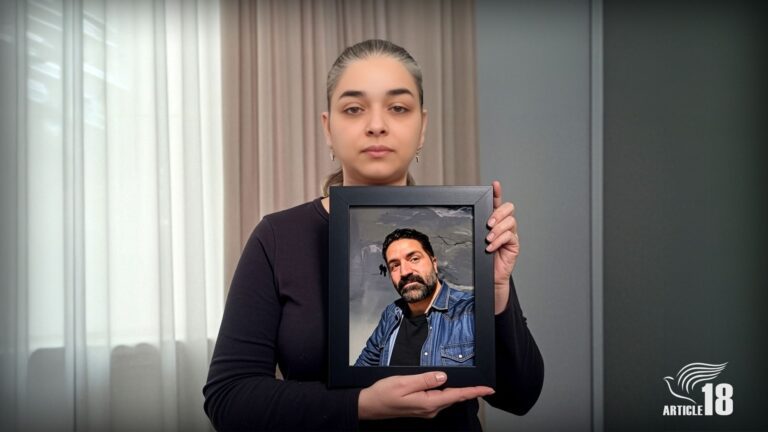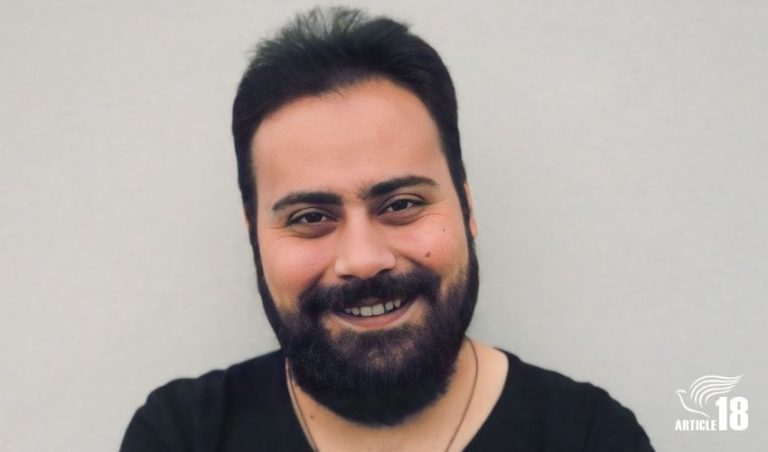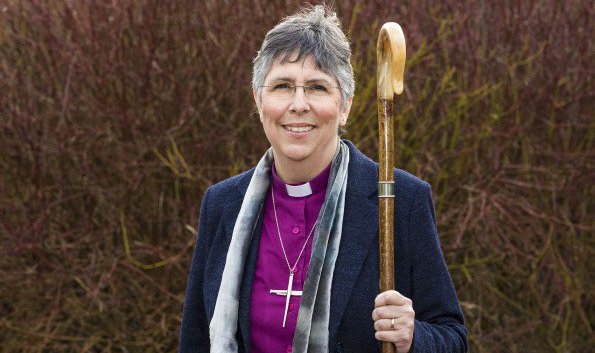
Esmaeil Maghrebinezhad is pensive as he relates the story of his conversion to Christianity in the early days of the Islamic Republic and the knock-on effects this decision had on every aspect of his life.
“My whole life was affected by persecution and harassment due to my faith,” says Esmaeil, who will turn 70 later this year.
“After years of hard work, I couldn’t even get my retirement papers and had to leave Iran because of my judicial conviction; my wife got cancer due to the stress and pressure we were under and died; I lost my home; and my son also suffered from acute fear and obsession due to the pressure and threats of the Ministry of Intelligence.”
When Esmaeil first converted, the primary source of pressure came from his family, with Esmaeil’s father-in-law even encouraging his daughter to seek a divorce and the wider family cutting off contact with them when they stayed together.
“Some of my wife’s relatives worked in the Ministry of Intelligence and considered us ‘impure’,” Esmaeil explains. “So from that moment on, only my wife’s close relatives stayed in contact with us.”
It wasn’t long before Esmaeil and his family were also being harassed by the authorities, who also routinely referred to him as “impure” and demanded that he return to Islam.
“In the 1990s, going to the Ministry of Intelligence became a normal thing for me,” he says. “About three to four times a year, the Ministry of Intelligence would summon me, threaten me and tell me who I could and could not continue to have contact with.”
When Esmaeil’s wife died in 2013, Esmaeil requested that her body be laid to rest in the local Christian cemetery, but despite receiving a written confirmation from the Anglican bishop of Iran that Esmaeil’s wife had been a Christian, the request was rejected.
“On the day of the funeral, three agents from the Ministry of Intelligence were present as my wife’s body was washed in the Islamic way and placed in a shroud filled with Quranic verses,” Esmaeil recalls. “They prayed over her body, and after an Islamic ceremony was held by the caretakers of the Shiraz cemetery and the three agents, she was buried in the Muslim cemetery. Only five members of my family were allowed to attend the funeral: my two daughters, son, son-in-law, father-in-law, and myself.”
And still the pressure continued, culminating in Esmaeil’s violent arrest in 2019.
In his subsequent interrogations by the Ministry of Intelligence agents who detained him in solitary confinement for a week, it became apparent that a recent convert who had been asking Esmaeil questions about Christianity was married to an agent of the Islamic Revolutionary Guard Corps, and both she and her husband had now fled the country.
Despite Esmaeil’s protestations that he hadn’t known this man, his position, or even that the couple had fled the country, he was threatened with execution if he didn’t reveal their whereabouts.
Three separate prison sentences were eventually prepared for Esmaeil, on charges of “propaganda against the state”, “membership of a group hostile to the regime”, and “insulting sacred Islamic beliefs”.
While the third conviction was eventually overturned, Esmaeil’s appeals against the other two sentences failed, leaving him facing imminent imprisonment.
Esmaeil says he was “ready to be imprisoned for my Christian faith’, but decided to leave Iran for the sake of his son, Ali, who had developed acute obsessive compulsive disorder (OCD).
“If I went to prison, he would be alone,” Esmaeil explains, “so I decided to leave the country because of my son.
“Our relatives had cut ties with us because we were Christians, and had rejected us. I was responsible for his care, and he needed me, and still needs me. I am worried about him. He needs urgent treatment and I need to get him to a safe country to get his OCD treated.”
Esmaeil and Ali, who is now in his early forties, initially fled to Turkey, but after Ali’s anxieties worsened, they relocated again to Armenia.
“Although our apartment in Turkey had a camera, Ali was very afraid,” Esmaeil explains. “The apartment door had three locks. He always activated all three locks and left a pair of shoes outside the door [to show someone was inside]. The outer door was always closed. It made our home look like a prison.
“I explained to my son many times that we aren’t very important people for the Iranian government such that they would keep an eye on us in Turkey, but he was very worried because of the negative impact of all we had suffered in the past, and was constantly afraid that they would harm us.”
So after three years in Turkey, Esmaeil and his son traveled to Armenia on three-month tourist visas – visas that have now expired.
“I have to go to the immigration police, but Armenia is the so-called ‘backyard of Iran’ and has friendly relations with Iran,” Esmaeil says. “That’s why I’m afraid to talk to the police in this country about my situation.”
Last year, Article18 published a report highlighting the “critical need” for new resettlement opportunities for Iranian Christian refugees, but despite some families being subsequently accepted for relocation to Canada and the United States, many still await resettlement, while some of those accepted to the US discovered late last year that refugees in Turkey are no longer eligible for resettlement.
Article18 has created a dedicated Refugee page in an attempt to connect refugees such as Esmaeil and Ali with those who may be able to support them in their path towards resettlement.
If you would like to be part of this journey, please contact us at info@articleeighteen.com.
You can read Esmaeil’s full Witness Statement here.



0 Comments